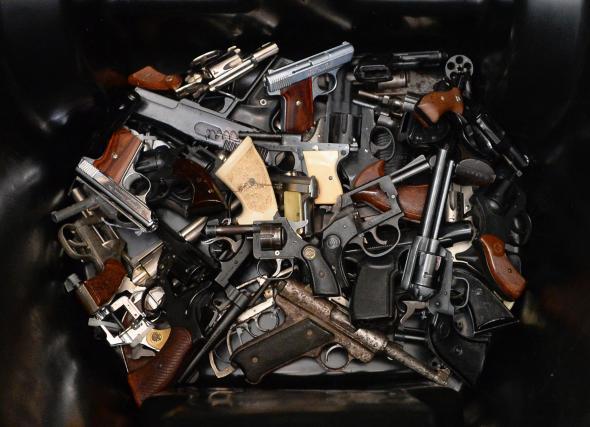A federal appeals court in Cincinnati has ruled unanimously that a federal law barring people who have been committed to mental institutions from owning guns is unconstitutional. The court found that the ban, which prevented 73-year-old Michigan resident Clifford Charles Tyler from owning a gun because he was institutionalized for a month in 1986, is a violation of his Second Amendment rights. From the Wall Street Journal:
“The government’s interest in keeping firearms out of the hands of the mentally ill is not sufficiently related to depriving the mentally healthy, who had a distant episode of commitment, of their constitutional rights,” wrote Judge Danny Boggs, an appointee of President Ronald Reagan, for the panel.
Laws limiting mentally ill individuals’ access to guns generally face the opposition of both gun rights activists and advocates for the mentally ill, who worry that bans will intensify the stigma people with psychiatric issues face in society. (Advocates of the laws point out that while it may not be a perfect predictor, serious mental illness has been found to correlate with an elevated likelihood that someone will engage in violent behavior.) The appeals court’s ruling follows a legislative trend away from such restrictions—as a 2011 New York Times piece reported, a number of states have created rights-restoring programs under which petitioners with past disqualifying mental illnesses can submit documentation to show that they’ve recovered and are fit to own a gun. Michigan never set up such a program, though, so Tyler had no means of proving himself fit.
